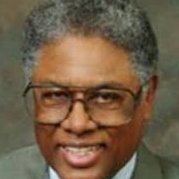Obama, Putin to confront tensions on Syria, Ukraine
-
Recently Browsing 0 members
- No registered users viewing this page.
Announcements
-
Topics
-
Latest posts...
-
6
Trump appeal against ridiculous fine looks like a winner
It wasn't behind a paywall for me but hey, try google - there's plenty of free sources for the same story out there. You'll even read reports on <removed> websites. You'll know where to find them, eh? Carry on. -
103
Hitler’s AI Translated Speeches Go Viral on TikTok in Troubling Trend
Why do you think it's them are you antisemitic -
7
Man Dies After Attack by Mixed-Breed Stray Dogs in Ubon Ratchathani
sure and after " the dogs removal operation" Thailand will become prosperous and truly well developed country.. generally speaking TH is the third world country and that is one of the reason why nobody cares about stray and feral mutts. -
9
Billy Eilish's "Birds of a Feather" - is it better than anything by the Beatles?
Best lyrics ever (IMO) -
103
Hitler’s AI Translated Speeches Go Viral on TikTok in Troubling Trend
I'm pretty sure the rhetoric of "orange man bad" "threat to our democracy" "must be stopped at all costs" has led to 2 (possibly 3) assassination attempts,and that rhetoric is not coming from Trump and his acolytes,pay attention yourself ! -
11
Interesting read from a well informed professor of US history.
True enough, although a reply to one of my posts observed he quite reading after the first 3 sentences. His point was that it needs to basically be reduced to a Twitter feed or people lose interest. True, the American attention span is what? 10 minutes" Ha! Pity my students of history who sat through hour long lectures/discussion of American or European History (American survey undergrad courses). Yep, concentration for more than a "sound bite". Yep, uphill battle with the average reading ability at the 7th- 8th grade level. -
19
PM Paetongtarn tops the polls whilst Thaksin falls to 7th
Is there any evidence or just your gut's feelings?😳 -
6
Trump appeal against ridiculous fine looks like a winner
Yes, I agree posting a link to a source hidden behind a paywall is quite laughable. -
9
Billy Eilish's "Birds of a Feather" - is it better than anything by the Beatles?
Christ standards are so low, at best its extremely mediocre too many much better Beatles songs to mention Across the Universe for starters, Hey Bulldog and Mozarts Piano concerto for two pianos , George Michael way waaaaaaay better. -
5
[QUIZ] 26 September- Car Manufacturer’s Logos Part 1
I just completed this quiz. My Score 100/100 My Time 51 seconds -
15
Tipping Grab Food Delivery Driver
How do they pad the bill when paying with credit cards? 🤔 I always know the total cost before I place the order, whether taxi or food, which is why I use Grab, Bolt, Food Panda, Lineman, etc. -
103
Hitler’s AI Translated Speeches Go Viral on TikTok in Troubling Trend
Leave my Wife out of this , its nothing to do with her . Joking aside, who is this hierarchy enslaving me ? Is it the Jews ? -
4
Woman Robbed of Motorcycle, Cash, and Phone Near Pattaya, Police Suspect Inconsistencies
...could happen in a "world-class" destination?🤣 -
9
Billy Eilish's "Birds of a Feather" - is it better than anything by the Beatles?
Who's stuck in the past? I have the latest album from a current artist on pre-order. I listen to some current music but don't like a lot of it as I find most of it rather generic. That's o.k. as I'm not the target audience but don't tar us all with the same brush. If people get enjoyment out of music in any form that's fine by me. Listen to what you enjoy. -
5
/Featured Quiz 27 September - Weekly Featured Quiz - General Knowledge.
I just completed this quiz. My Score 40/100 My Time 165 seconds
-
.png.3b3332cc2256ad0edbc2fe9404feeef0.png)










Recommended Posts
Create an account or sign in to comment
You need to be a member in order to leave a comment
Create an account
Sign up for a new account in our community. It's easy!
Register a new accountSign in
Already have an account? Sign in here.
Sign In Now